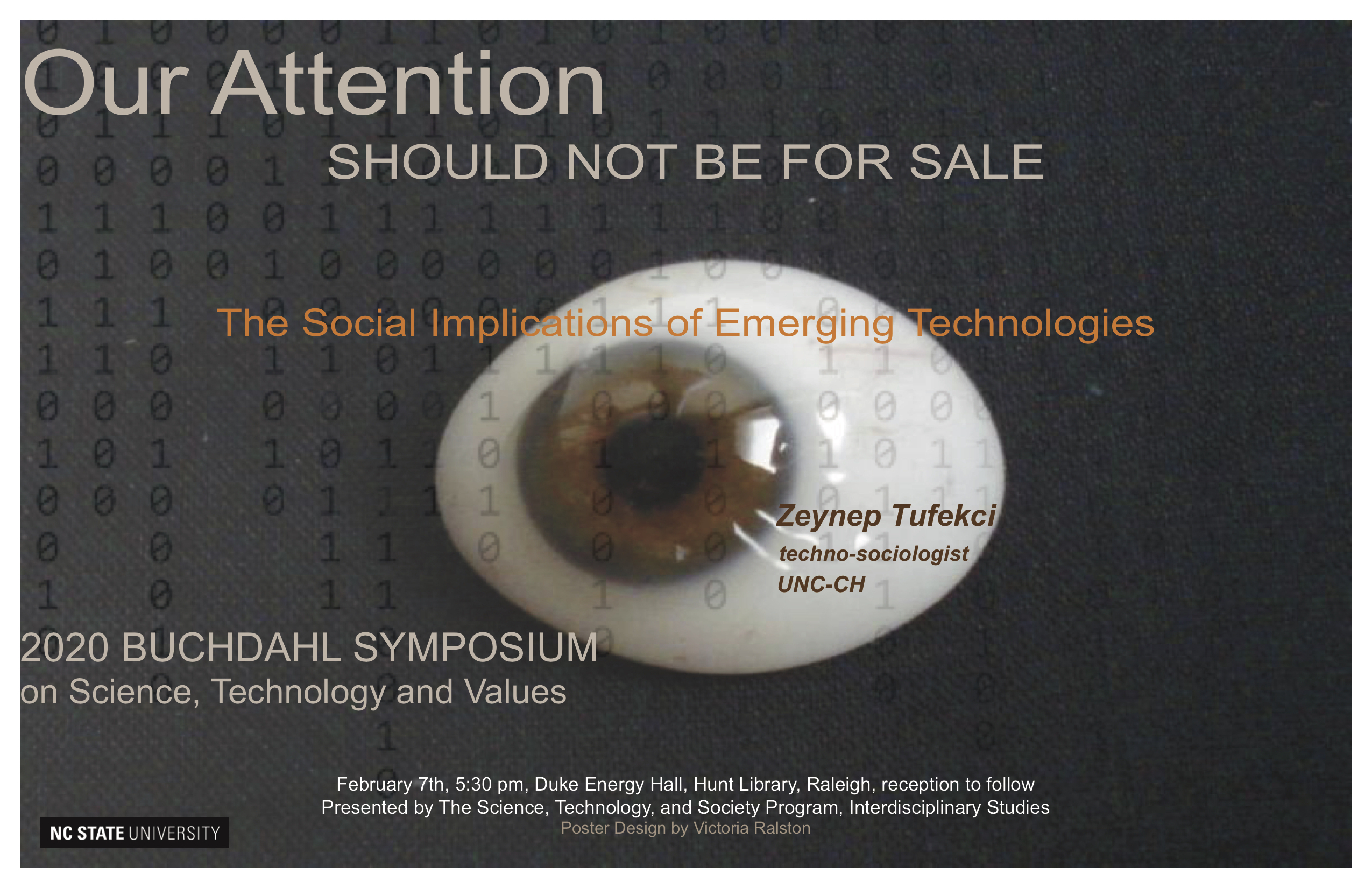Our Attention Should Not Be For Sale
2020 Rolf Buchdahl Lecture

with Dr. Zeynep Tufekci, University of North Carolina at Chapel Hill
Our personal, psychological, social and religious profiles are being distributed on a larger scale than we know. For years Dr. Zeynep Tufekci has researched the impact of social networks on social change and the threat of unchecked data collection and exploitation by those in power. She has spoken forcefully about social media companies in particular. “I should affirmatively, actually consent to the way data is being collected about me,” Tufekci says.“ That data should only be collected for whatever I want it to be collected for” rather than just harvested and sold for others profit.
Join us on February 7 to hear what went wrong with social networks. Why has what was once seen as America’s most innovative industry now become one of its most hated?

2020 Speaker: Zeynep Tufekci
Zeynep Tufekci is associate professor in the School of Library and Information Science at the University of North Carolina-Chapel Hill and is an affiliate faculty member in the Department of Sociology. She is a founding member of the Center for Information, Technology, and Public Life (CITAP), dedicated to researching, understanding, and responding to the growing impact of the internet, social media, and other forms of digital information sharing.
She is also a faculty associate at the Berkman Klein Center for Internet and Society at Harvard University, a writer for Wired and The Atlantic, and a contributing opinion writer at the New York Times. Previously, she was an Andrew Carnegie Fellow for her proposal “Big Data and the Algorithmic Threat to Democracy and Civil Society” and a fellow at the Princeton University Center for Information Technology.
Dr. Tufekci’s work explores the interactions between technology and society. A principled and thoughtful researcher on internet privacy, she is the go-to source for many news media outlets on topics related to social media and the internet’s impact on politics and society. Tufekci teaches, researches and writes about equitable access to technology, information ethics, censorship, privacy, and freedom to read, and how people act as users of information and technology.
Her work has appeared in a wide range of outlets, from peer-reviewed journals to traditional media outlets and blogging platforms. Her book, Twitter and Tear Gas: The Power and Fragility of Networked Protest published by Yale University Press in 2017, asks, “Could the ability to organize massive protests quickly on Facebook and Twitter be making those protests vulnerable in the long term? If new technologies are so empowering, why are so many movements failing to curb authoritarianism’s rise? Is a glut of misinformation more effective censorship than directly forbidding speech? Why are so many of today’s movements leaderless?”
- Categories:

